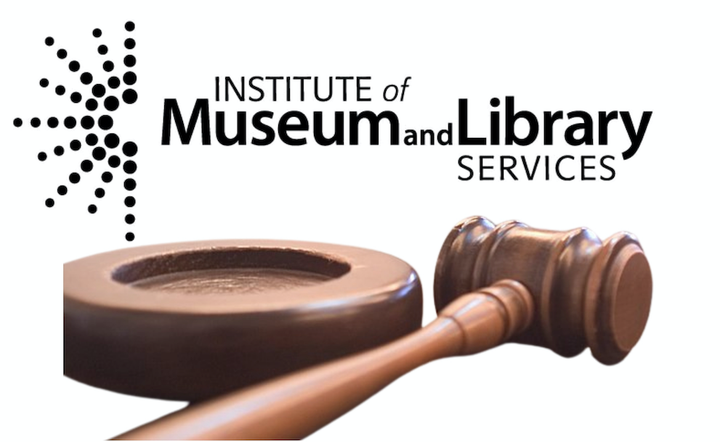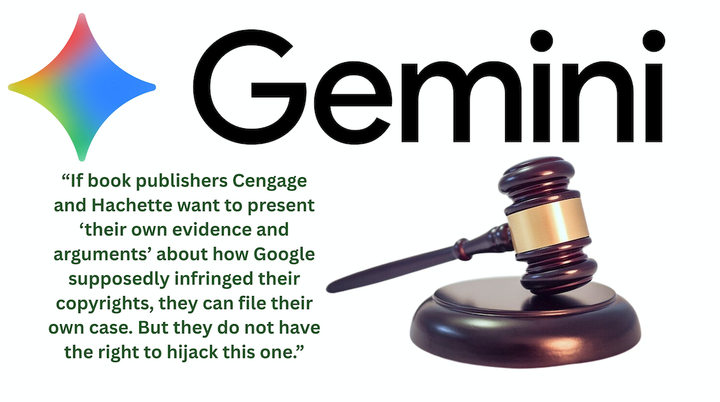The Queue: Library News for the Week Ending August 15, 2025
Among the headlines this week: Rhode Island celebrates its new Freedom to Read Act; EveryLibrary has launched a new advocacy training program; Wyoming librarians express concern over a new 'harmful to minors' bill; and Amanda Jones continues to stand tall for libraries.
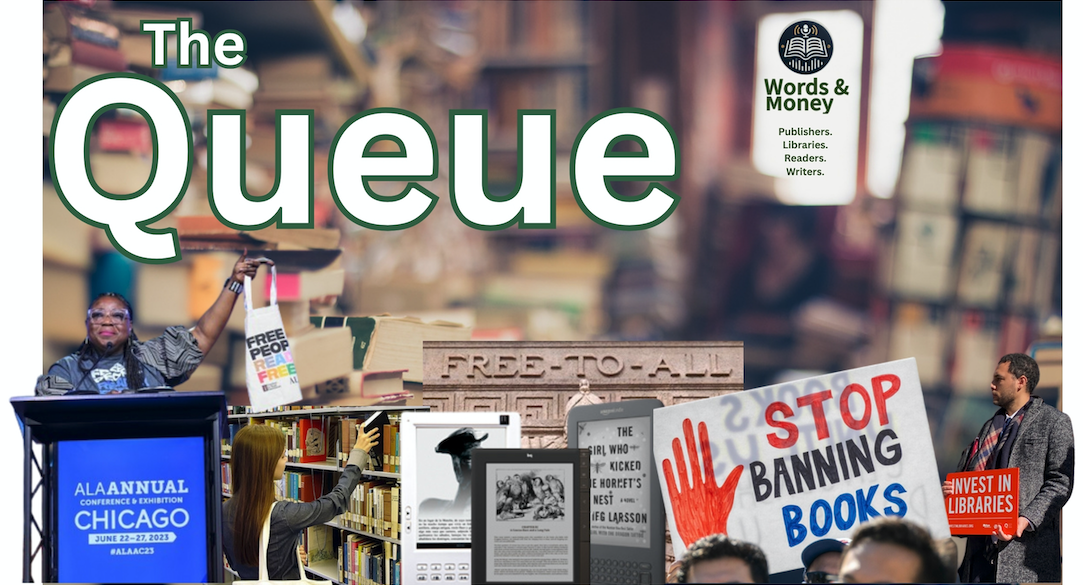
Advocates have hailed Rhode Island's recently enacted Freedom to Read Act as a model for the nation. And after quietly signing the bill into law on July 2, Governor Dan McKee turned up the volume this week by gathering many of the coalition members who helped write and pass the legislation for a celebratory signing ceremony at the Rochambeau Library, one of the Community Libraries of Providence.
Multiple outlets were on hand to cover the event, and the Governor's Office put out a release and shared photos on social media. But check out independent local journalist Steve Ahlquist's Substack for a 35-minute video of the event, and some in-depth quotes.
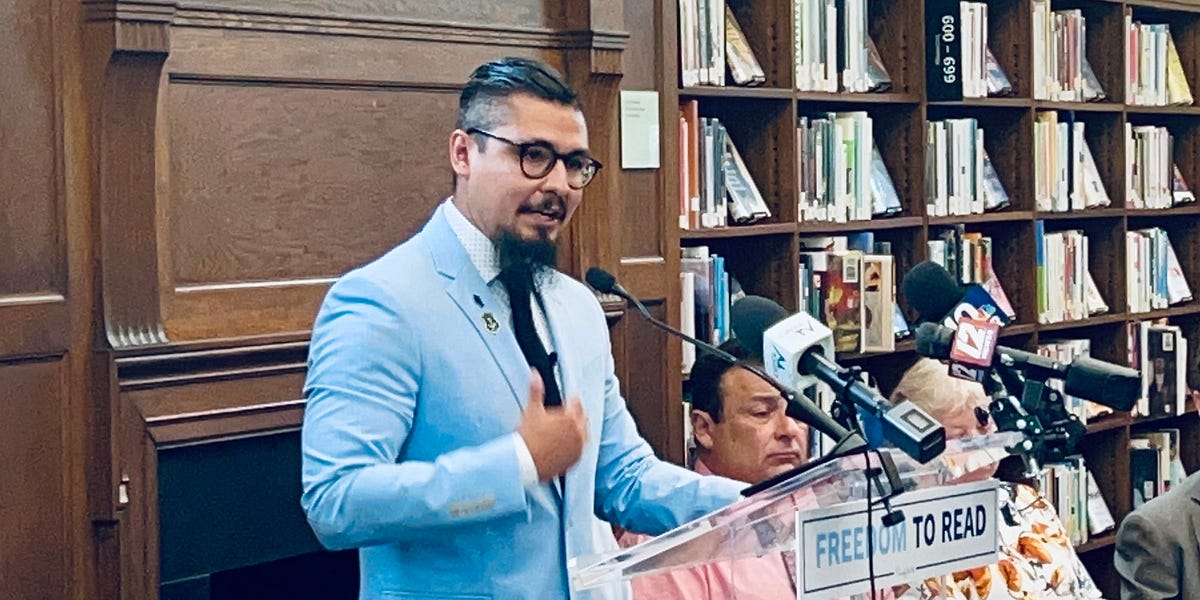
“Public libraries are places where you can find yourself in other people’s words,” McKee said, in his prepared remarks. “In Rhode Island, we promote free expression. We don’t restrict it. And in Rhode Island, we see censorship for what it is: a way to limit what we can learn about the world—and about each other.”
Personally, I found remarks by the bill's sponsor in the Rhode Island House, Rep. David Morales, to be especially inspiring. In addition to praising the coalition that assembled and persevered to see the law over the finish line, Morales looked beyond the bill's passage to what else such organized support for libraries might achieve.
"As we look ahead, it’s important that we recognize that we have made progress to protect access to literature, but now it’s about expanding that access, and that looks like making sure that every public school is entitled to a public library. It’s about making sure that every neighborhood has a library that’s open until 8 p.m. and on weekends. It’s about making sure that our neighbors can access the library through public transportation," Morales said. "I say all this because public libraries are a public good. They are our local town squares, especially for working people, families, and students. Community libraries are where neighbors gather together because not all of us have access to a recreation center. Not all of us can afford a cup of coffee to get out of the house. But what we can count on is our libraries, our public institutions. We must ensure that these public institutions are protected, but most importantly, receive the investments they deserve.”
EveryLibrary Launches New Advocacy Training Program

Speaking of advocates and coalition builders, EveryLibrary this week announced the launch of a new Yes Campaign Cohort, described as "the first program in a suite of trainings designed to equip ballot committees and advocates with the skills to organize, message, fundraise, and win in today’s challenging political environment."
The program is open to "library stakeholders who are engaged in or anticipating campaigns to pass a public library ballot measure in the next 60 months." It features "nine core curriculum sessions" specifically for library ballot measure committees and advocacy initiatives.
“The Yes Campaign Cohort is a practical, field-tested path for library leaders and community advocates to take their Vote Yes campaigns to the next level,” said John Chrastka, Executive Director of EveryLibrary, in a release. “With generous support from Communico and TechLogic, and Equinox’s instructional design expertise, we’re delivering training that is both deeply useful and highly engaging.”
Authors Guild Celebrates Freedom to Read Victory in Florida
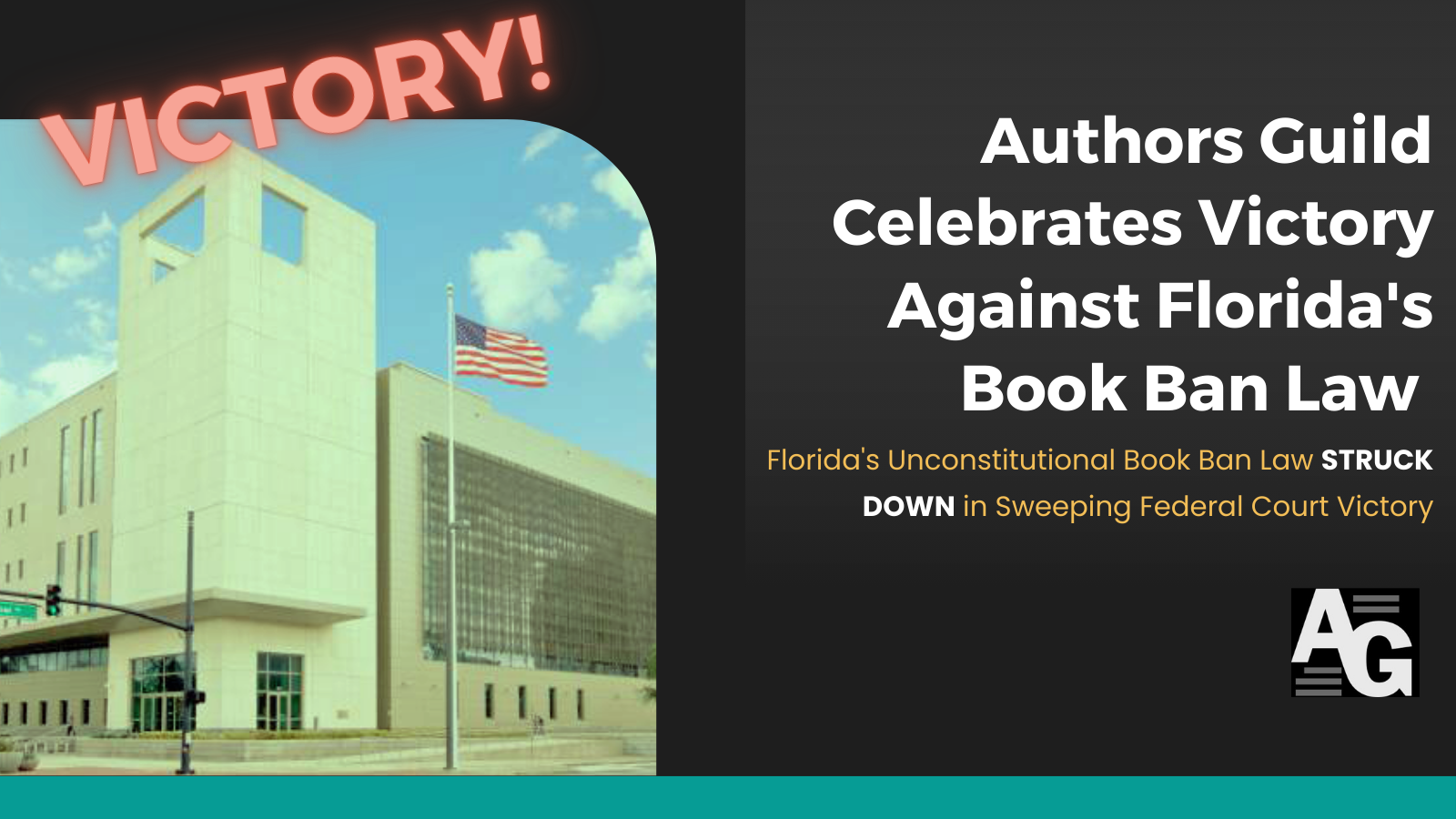
In an August 14 release, the Authors Guild, one of the plaintiffs in the closely watched lawsuit to block two onerous book banning provisions in Florida state law HB 1069, celebrated Judge Carlos E. Mendoza's August 13 decision upholding the freedom to read.
"This decision sends a clear message: the Constitution protects the right to read, the right to access diverse literature, and the right of authors to have their voices heard," the statement reads. "It provides a powerful template for challenging similar laws across the country, reaffirming the principle that governments must apply the Miller standard and consider a book’s overall value rather than isolated passages, respect the professional expertise of librarians and educators, and insist on actual evidence rather than speculation to justify censorship."
PEN America Receives $1.4 Million Grant to Support Public Libraries

PEN America has announced a $1.4 million grant from the Mellon Foundation to "fortify its work fortifying the freedom to read, with a heightened focus on supporting public libraries and librarians." According to a release, the gift will help expand research and analysis, public awareness campaigns, and coalition building.
“As open access to books has come under increasing attack, the historic role of public libraries as powerful community spaces for building empathy and critical thinking is in jeopardy,” said PEN America's Jonathan Friedman. “As a society we have to be able to engage with complex histories and ideas, but now more than ever, the libraries and librarians that uphold this democratic value need the public’s support.”
As Students Return to School, Administrators Wrestle with Supreme Court's 'Mahmoud' Decision

Via WTOP News, a report on how the Supreme Court's recent decision in Mahmoud v. Taylor might impact schools. The controversial decision paves the way for parents to opt their children out of lessons which they feel violate their religious beliefs. And it's a thorny issue: while freedom to read advocates have done significant work to keep diverse books in schools, what happens if the books can stay, but the students can leave?
“Most of the time, when families are able to engage with our teachers around the content, or book selection, or how it’s going to be taught, the concerns can be addressed,” Loudoun County Public School’s Assistant Superintendent for Teaching and Learning Neil Slevin told WTOP. "However, in the event a family wants to opt-out their child from the half-dozen offerings, 'teachers will work with them to choose a book that the student can engage with, and still meet the standards for that unit,' Slevin said." Slevin added that the decision is prompting school officials to consider "appropriateness in our libraries."
CBS News in Colorado also takes a look at how schools will be approaching lessons in the wake of Mahmoud.

"Books covering themes like race, sexual orientation, gender identity, and political or religious beliefs are staying on library shelves in Boulder County but your student may not have to read them," the report notes. "The night before the first bell of the school year rings for Boulder Valley School District, the school board approved a policy change that allows students and parents to opt out of curriculum covering controversial themes with no questions asked."
Meanwhile, over at Book Riot, Kelly Jensen leads off her weekly censorship news column by offering resources to better understand Mahmoud.

"While book censorship will be an outcome of this ruling–we’ll see untold amounts of quiet censorship on the part of schools and educators related to the materials available and used in libraries and curriculum–this is a case about religious liberty and public education," Jensen writes. "One of the biggest concerns worth thinking about with Mahmoud is how it will be another tool in the arsenal to dismantle public education."
A New 'Harmful to Minors' Bill Could Devastate Libraries in Wyoming
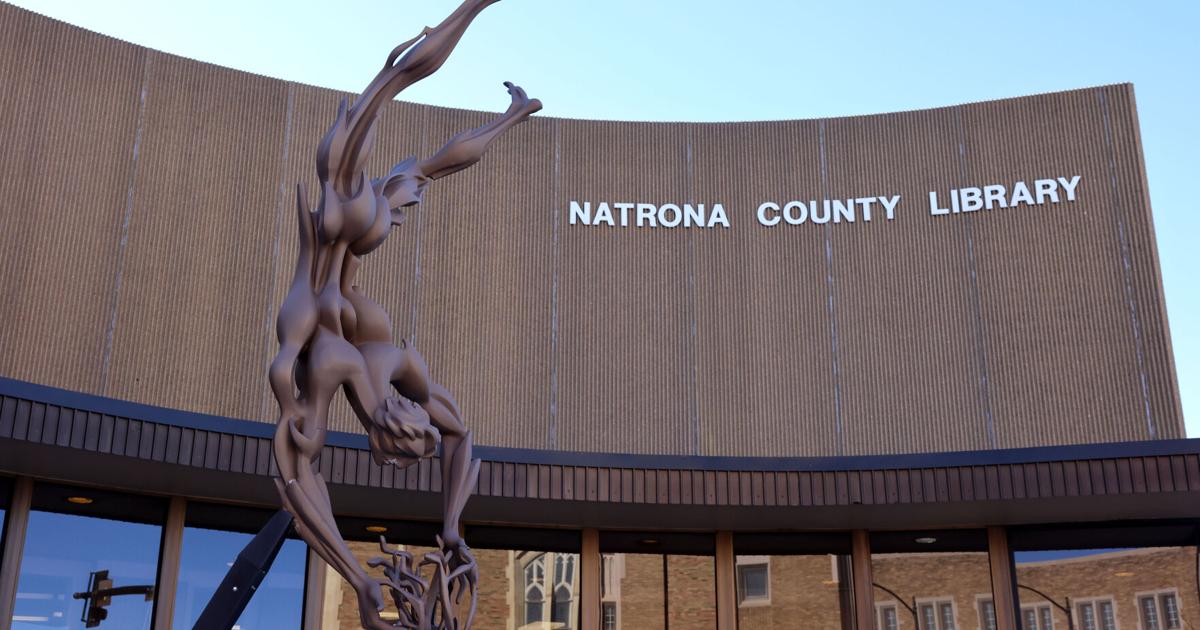
Via the Casper Star-Tribune, news about the Wyoming legislature's efforts to advance a bill that "librarians from across the state say will eliminate young adult and teenage sections from public libraries," and expose local libraries to ruinous fines of up to $50,000 fines for "housing literature deemed sexually explicit" in children’s, teen, and young adult sections.
"On Tuesday, the Wyoming Legislature’s Joint Judiciary Committee discussed the bill draft in Casper. The room was filled with concerned librarians and educators from every corner of the state, and a separate room was opened for overflow attendees to view the meeting," the article adds. "As written, [the bill] could include texts like educational material about puberty and sex, historical accounts like Anne Frank’s diary, and sacred texts like the Bible, the Quran and the Book of Mormon," the report notes.
Among other outlets covering the bill's discussion, the Gillette News Record reports that "the critics’ calls for local control over their libraries’ circulation policies were met with legislators’ claims that their responsibility to be moral leaders in the state obligated them to make overarching policy decisions."
Houston Schools and Libraries Grapple with New Texas Laws
Via Houston Public Media, a report on how librarians and educators are preparing to work under two Texas laws.
"Senate Bill 12 restricts several diversity, equity and inclusion (DEI) initiatives in Texas public schools, while Senate Bill 13 introduces new library policies geared toward restricting books about gender, sexuality and other politically polarizing topics. Both are slated to take effect Sept. 1," the report notes. "I'm concerned that with some of the changes that are happening under Senate Bill 13, that teachers will pull back and there will be just overall less reading material," Steve Amstutz, a former Houston ISD teacher and principal who now is the co-executive director for the Institute for Research and Reform in Education, told the outlet.
How IMLS, NEH Cuts Are Impacting Schools

EdWeek has a report this week on how the Trump administration's cuts to federal agencies might impact schools. Spoiler alert: it's not good.
“It is the perfect storm for educational catastrophe,” Amanda Kordeliski, the director of libraries and instructional technology for the Norman public schools in Oklahoma and the president of the American Association of School Librarians," told EdWeek.
Michigan Librarian Speaks Out About Harassment

Via WOODTV News 8, Christine Beachler, the library media director for the Lowell Area Schools (Michigan) who is suing over a parent's alleged smear campaign against her, spoke about her experience.
“The accusations that have been made against me are not even decent,” Christine Beachler told the station. “They’re accusing me of criminal activity. They’re making accusations that I am abusing children. And that’s not right,” she said. Beachler explained that the district has "more than 75,000 books spread across its six libraries," of which "only two have been flagged in the past five years for mature content." Both were retained.
Long Beach Joins Forces with Books Unbanned

The Los Angeles Times has a report on southern California libraries who have joined forces with Books Unbanned, the initiative founded by the Brooklyn Public Library to offer digital library cards to students facing book bans in their home states.
"Cathy De Leon, the director of the department of library, arts and culture at Long Beach Public Library, said plans to join Books Unbanned began around late 2024," the article notes. "The Long Beach Public Library Foundation, a nonprofit charity that supports the library financially, began communicating with the Brooklyn Public Library about the project and found the partnership to be a 'really good fit, and something we really believed in,' she said. The Long Beach City Council approved the partnership on July 22."
And Finally This Week...
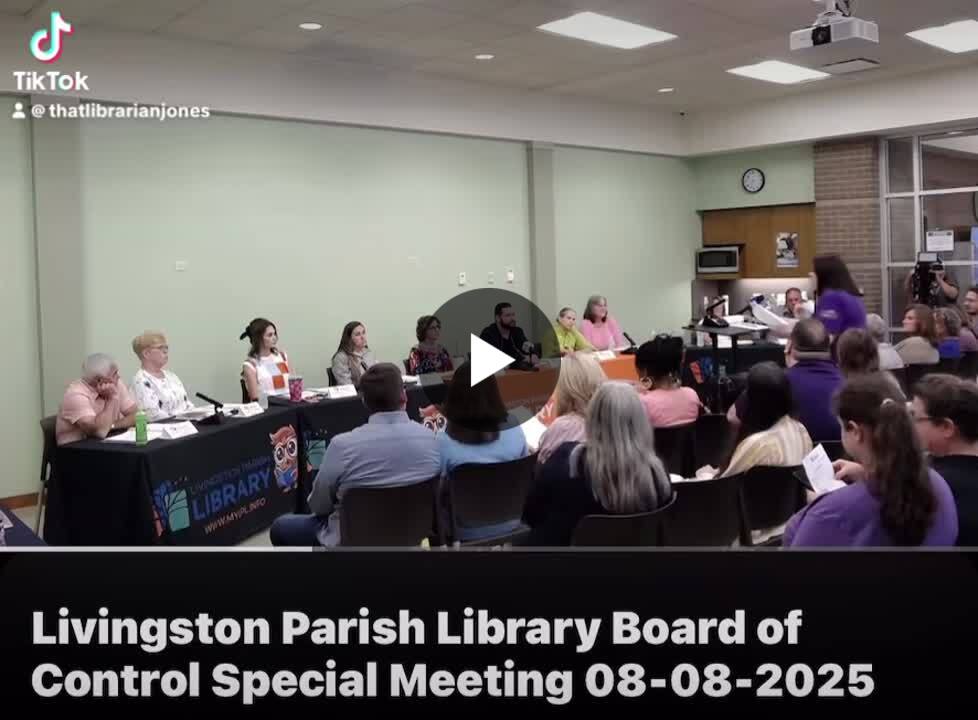
We led off this week's column with an example of what can be achieved when coalitions of library supporters come together to defend libraries, their communities, and the freedom to read. But let's also take a moment to praise courageous individuals, like Amanda Jones. And, what it means to show up.
The award-winning librarian and author has been a beacon for the freedom to read, often at great personal cost. And in a video now making the rounds on Tik Tok, Jones spoke up on August 8 (Jones appears at the 42:08 mark) in defense of former Livingston Parish Library director Michele Parrish, who was shockingly fired last month in a move that caused several members of the Livingston Parish Library Board of Control to resign their seats on the spot.
"Let’s not sugarcoat it: people who attack libraries aren’t defenders of morality. They’re destroyers of community, allergic to ideas they can’t control," Jones later wrote in a post on her LinkedIn page. "To every resident still showing up, speaking out, and defending libraries, the First Amendment, and the right to read: you are the firewall against ignorance. You are the reason tomorrow’s kids will inherit more than just fear and censorship. And to the people who want to silence us—good luck. We’ve got microphones, library cards, and the truth on our side. See you at the next meeting."












